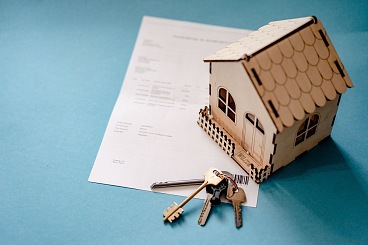Real estate fraud - story of Prague vila.
Real estate is the most valuable tangible asset you can acquire. There’s big money involved in real estate, which also means you have to be prepared for scams of various kinds. Although people typically shift all the blame on real estate agents, today we will talk about buyers and tenants. I have prepared a few examples of such frauds for you.
When preparing your property for rent, you should forget about the emotional bond that ties you to it. I know you might have a lot of memories and feelings associated with the property. But if you allow a stranger to use your real estate, it is sometimes much better to be willing to make minor changes and find a good, reliable tenant than to cling to the tiles in the bathroom you’d chosen with your grandfather.
The first story begins in a lucrative Prague location...
An owner of a villa decides to offer his property for long-term rent. Although the house has nice architecture, the interiors require reconstruction.
A real estate agency manages to find a prospective long-term tenant for the villa - a founder of a chain of private schools who would like to open a kindergarten in the villa. But it is necessary to modify the property for this purpose, create outdoor facilities, adapt the bathrooms.
Negotiations go on for weeks, and it takes several more weeks to prepare the contract and construction documentation.
Finally, just before signing, the property owner changes his mind. Because he doesn't want to remodel his bathrooms to suit the children.
Another interested party appears...
The real estate agency therefore continues to offer the property and another interested party appears. The tenant is not as trustworthy as the previous one, but since winter is approaching, the owner wants someone to warm the house.
He was told that the purpose of the lease is housing for a family, and felt comfortable with that.
However, the owner had a feeling that there was something off about his future tenant, and so he conditioned the signing of the contract with a joint photo.
That was where the real estate agency’s service ended, as it offered only rental mediation, not property management.
Four months later, it came to light that the tenants had set up a marijuana growing room in the villa.
It was discovered due to an excessive consumption of electricity, reported to the police by the energy company.
The tenants had built pipes for the watering system in the villa, made holes between the floors, and that was not even all the damage they caused.
Looking back at the first applicant, building bathrooms for kindergarten suddenly looks like a very acceptable alternative.
How to avoid becoming part of a similar story:
1. If you’re planning to rent one of your properties, you have to mentally separate yourself from the things inside it. As we’ve already mentioned in the previous episode: "Things that are valuable to you don’t necessarily increase the value of the property."
2. Trust your intuition, and if the tenant seems suspicious to you from the first moment, do not sign the contract.
3. On the other hand, if it’s a person or company with a demonstrably positive history, you cannot wish for a better tenant, even if it should be at the cost of mutual compromises.
4. After prior notice to the tenant, use the opportunity to visit your property while you’re renting it (usually once every 3 months).
5. Make the tenant's obligation to insure the property part of the contract and buy your own insurance as well.
6. Contact the neighbors regarding the behavior of your tenants to find out if anything unusual is happening in the property.
Don't be discouraged by this story, but learn from the mistakes of others. Unlike a sale, renting a property is a long-term contractual relationship, which means it is very important that all parties are satisfied.











